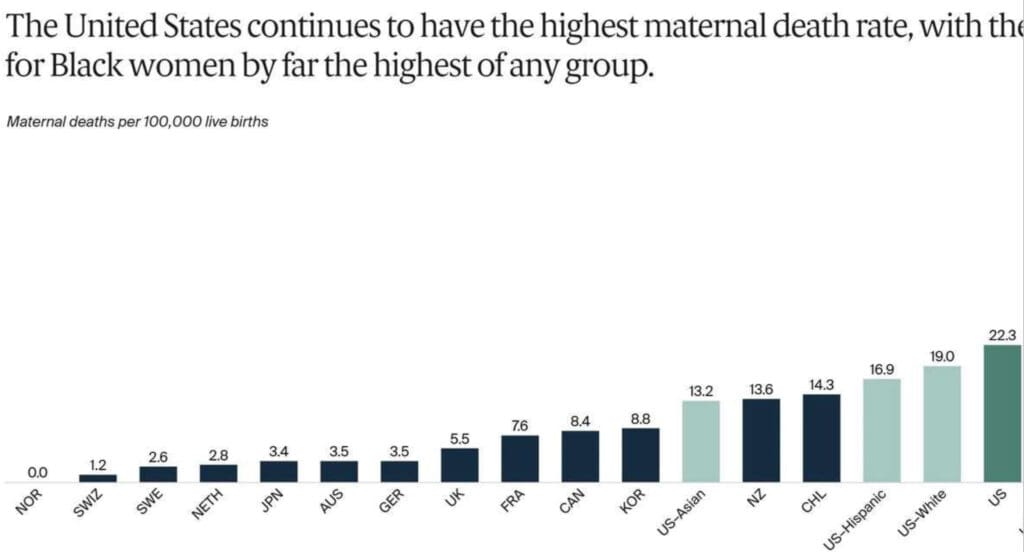2024 Black Maternal Health Caucus Stakeholder Summit
Congresswoman Lauren Underwood hosted the 4th Annual Black Maternal Health Caucus Stakeholder Summit in Joliet, IL on August 26, 2024. The Summit convened virtually and in-person with a wide array of community stakeholders including but not limited to doulas, midwives, obstetricians, health equity managers, and a variety of not-for-profits-many founded as a response to personal experience. The all-day event focused on federal legislation to improve maternal health outcomes with a spotlight on the Momnibus Act, trainings on how to access federal funding, and networking opportunities to help build partnerships and strategies to end the maternal health crisis.

The U.S. has the highest maternal mortality of any high-income country (see table below-Munira Z et al) with more than 80% of deaths determined to be preventable (Trost SL et al). The maternal mortality for Black women is more than double that of White women. These numbers were brought to life through personal accounts from attendees who shared stories about their traumatic birth experiences, near misses (defined by the World Health Organization as “a woman who nearly died but survived a complication that occurred during pregnancy, childbirth, or within 42 days of termination of pregnancyâ€-Say L et al), and the loss (death) of loved ones.

These personal accounts provided valuable insights into the root causes of poor maternal health outcomes that are often lost in the analysis of aggregated quantitative data. Understand, without question, quantitative data collection and analysis is vital to assessing and tracking maternal health outcomes nationally, as well as the impact of interventions. However, the lack of inclusion of qualitative data unintentionally affords us the opportunity to deny the contribution of implicit/unconscious bias and systemic gender and racial discrimination on maternal health outcomes. The exclusion of qualitative data due to its subjectivity and perceived lesser importance than objective quantitative data constrains the narrative and development of solutions to address this crisis. As a wise friend once told me, our data does not trump the lived experience of the community.
As we continue to move forward and make positive strides toward eradicating maternal mortality through Momnibus and other legislative efforts both federal and local, let’s not forget the value of qualitative data when shaping solutions.
REFERENCES
1. Munira Z. Gunja et al., Insights into the U.S. Maternal Mortality Crisis: An International Comparison (Commonwealth Fund, June 2024). https://doi.org/10.26099/cthn-st75
2. Trost SL, Busacker A, Leonard M, et al. Pregnancy-Related Deaths: Data from Maternal Mortality Review Committees in 38 U.S. States, 2020. Centers for Disease Control and Prevention, U.S. Department of Health and Human Services; 2024
3. Say L, Souza JP, Pattinson RC; WHO working group on Maternal Mortality and Morbidity classifications. Maternal near miss–towards a standard tool for monitoring quality of maternal health care. Best Pract Res Clin Obstet Gynaecol. 2009 Jun;23(3):287-96. doi: 10.1016/j.bpobgyn.2009.01.007. Epub 2009 Mar 19. PMID: 19303368.
